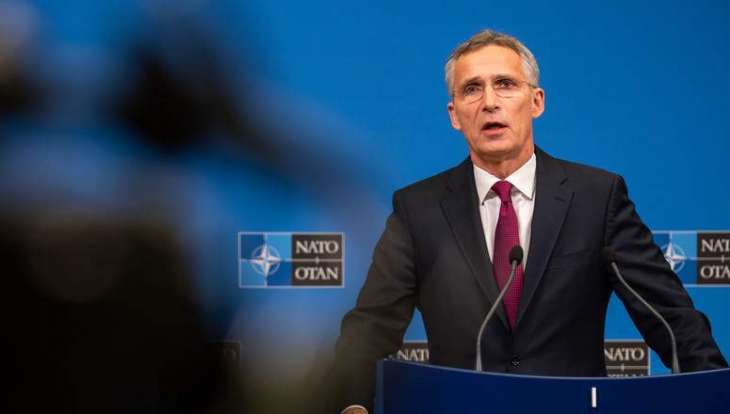NATO Secretary General Jens Stoltenberg has praised the alliance's adaptability during a ceremony on Friday to mark the arrival of US-made drones which will be based in Italy and form part of the Alliance Ground Surveillance program
MOSCOW (Pakistan Point News / Sputnik - 17th January, 2020) NATO Secretary General Jens Stoltenberg has praised the alliance's adaptability during a ceremony on Friday to mark the arrival of US-made drones which will be based in Italy and form part of the Alliance Ground Surveillance program.
Speaking at the Sigonella air base on the Italian island of Sicily, Stoltenberg remarked that the first deliveries of Northrop Grumman RQ-4 Global Hawk drones would herald a new era for NATO's surveillance capabilities.
"Up until now, only one Ally had this cutting edge capability. Now all 29 Allies are working together to operate the drones. To analyse the data they provide. And to fuse this with information provided from other sources giving us a fuller picture to inform our decisions and to support our forces," Stoltenberg said in a statement published on NATO's website.
The secretary general remarked that with the new surveillance system, NATO could not only conduct surveillance operations over a wider area, but the RQ-4 Global Hawk's 30-hour range would allow for NATO to simultaneously observe different regions of the globe. According to Stoltenberg, this demonstrates the alliance's ability to harness new technologies.
"It is a visible demonstration that NATO is adaptable, innovative and a united Alliance," Stoltenberg concluded.
RQ-4 Global Hawk drones constitute a key part of Washington's surveillance operations in the middle East. In June, the Islamic Revolutionary Guard Corps claimed that it shot down a RQ-4 drone over the coastal Hormozgan province. The US Central Command stated that the drone was shot down while operating over international waters in the Strait of Hormuz.




